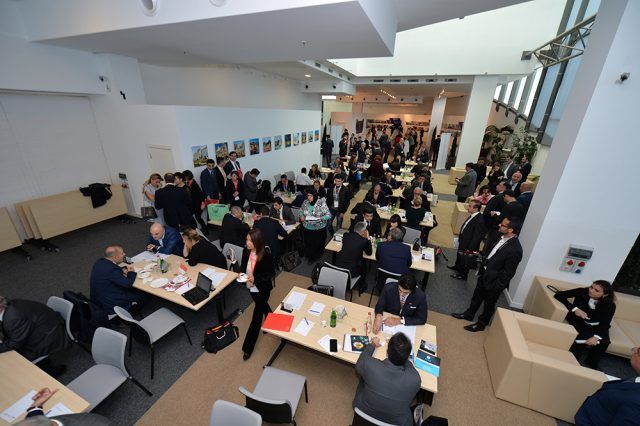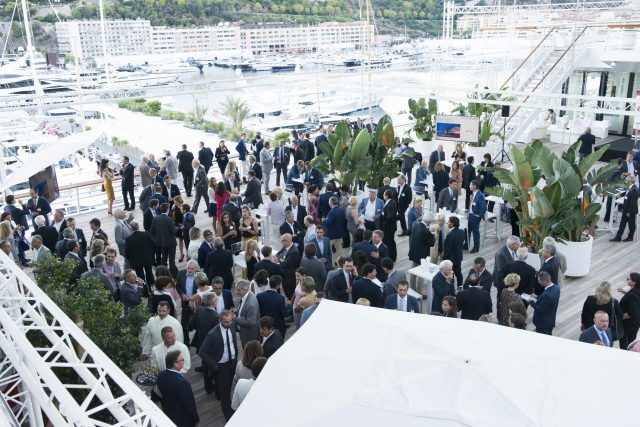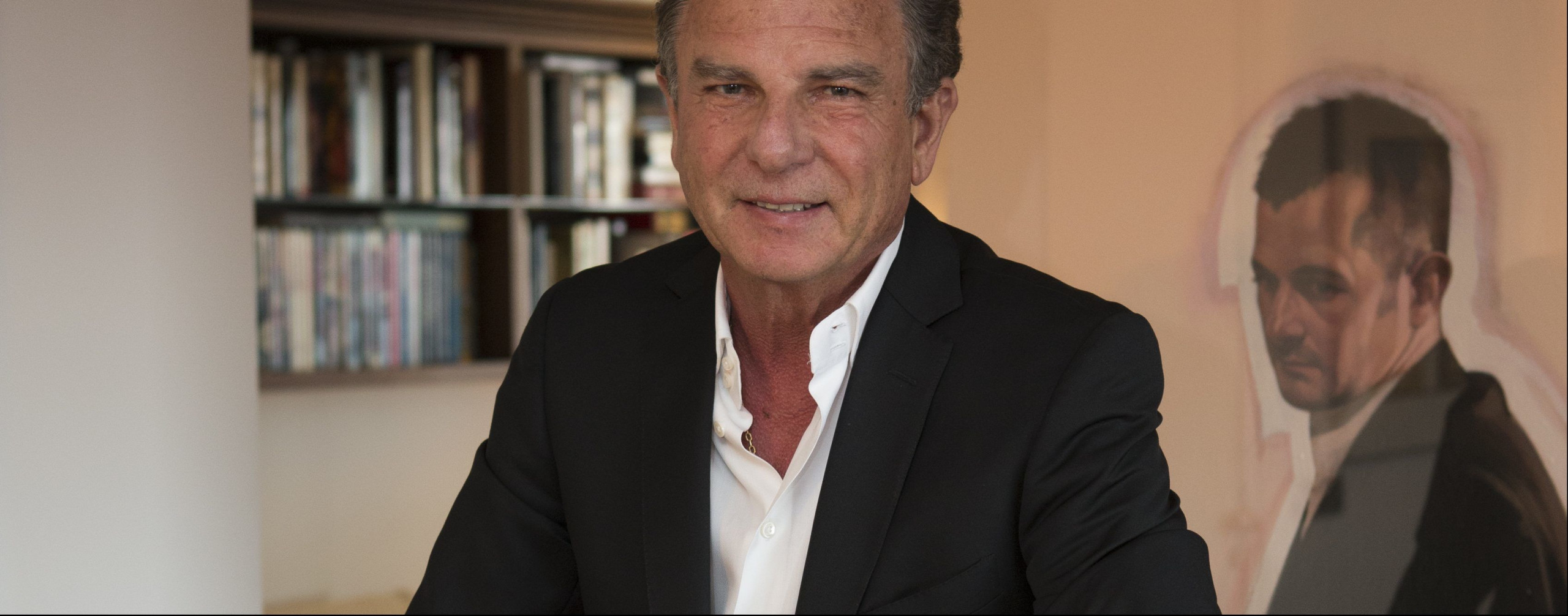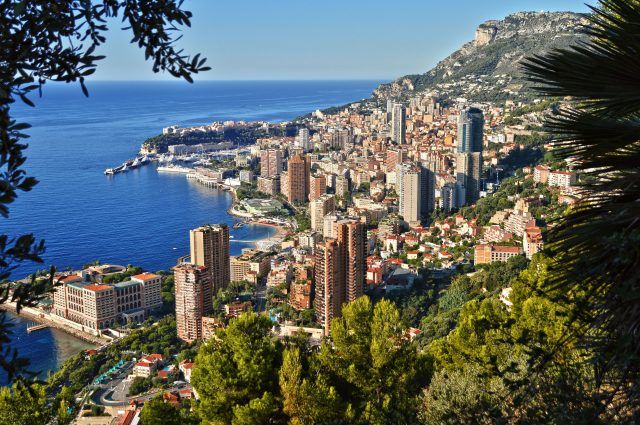Michel Dotta, Chairman of the Monaco Economic Board
ML: Could you tell us a little about your professional background, and how you came to be Chairman of the Monaco Economic Board (MEB)?
MD: I have been Chairman of the MEB since July 2009. Appointed to the MEB Board of Directors as a representative of the Monaco Government, I am very involved in the Principality’s social and economic daily life. As an estate agent since 1975 (Dotta Immobilier SAM), I am also President of the Monaco Real Estate Chamber, among other positions.
ML: What does your role as Chairman entail? Who makes up the MEB Board?
MD: Being Chairman of the MEB is quite a full-time job! Briefly, this requires having an in-depth knowledge of the economic fabric of Monaco, its companies and entrepreneurs, to best support them in developing their local and international networks. Getting results is key.
With members* drawn from companies, professional bodies and State institutions, the MEB’s Board represents nearly all economic stakeholders in the Principality. On the one hand, the Board ensures the association runs smoothly – from an administrative, personal and financial point of view – and on the other, it’s responsible for evaluating results from the MEB’s past actions and for developing future action strategies.
ML: Can you share the history and some key facts and figures about MEB?
MD: Set up in 1999 at the instigation of the Monaco Government, the principal mission of the MEB, then called the Monaco Chamber of Economic Development (CED), an association under private law, is to promote Monaco’s economy and business community. It helps facilitate contacts between Monaco entrepreneurs and their counterparts abroad.
Michel Pastor was the first Chairman (1999-2006). He developed the organisation by bringing together Monegasque professionals for operational events in Monaco and abroad. His successor Franck Biancheri (2006-2009) consolidated these achievements and was responsible for developing the mission to prospect for investors.
When I took over in 2009, I continued the work of my predecessors by focusing on expanding networks and activities between all those involved in Monaco’s economy (Team Monaco), the purpose being to maximise the impact of our events organised abroad.
To this end, in 2015 new targets were set to expand the association’s activities in the service of growing Monaco’s economy. After several months of strategic reflection with the Palace and Monaco Government, the CED became the Monaco Economic Board (MEB), thereby clarifying its position as a tool dedicated to member companies and Monaco’s dynamic economy. Under the aegis of the MEB, Monaco Chamber of Commerce and Monaco Invest play a functional role, constituting two separate departments which meet different needs and clarify the messages we want to impart.
The MEB, which is Monaco’s National Committee to the ICC since 2001 (ICC MONACO), currently has 500 company members and continues to grow, and organises 50 events a year on average in Monaco and abroad.

ML: What were some of MEB’s key missions and accomplishments last year? What are your missions for 2018 (Sweden, for example)?
MD: As mentioned, we aim to organise around 50 events every year, which we managed to do in 2017 despite the complex economic climate and a great deal of political uncertainty.
Our quarterly networking Members Rendezvous were extremely successful, with over 250 members attending. These are to promote local businesses and networking.
But 2017 was really a record year for our Trade Missions as we organised six!
The MEB worked hard to offer a diverse, high quality tailor-made programme. This approach will bear fruit, as many projects were initiated following these trips.
In 2018 we aim to organise Trade Missions to Stockholm, Frankfurt, Beijing and Hanoi to give our members as many networking opportunities as possible.
ML: Describe the Monegasque business community and the type of support offered by the Monaco Chamber of Commerce (MCC).
MD: Monaco is a dynamic platform. GDP is €5.85 billion with growth of 3.2%. The GDP per capita at €72,000 is one of the highest in the world. GDP per employee is €111,500.
Monaco hosts more than 5,000 companies, largely composed of SMEs with a focus on services. They are high added value and non-polluting and hire 52,000 employees on this territory of 2km2.
They are businessmen and women from diverse backgrounds: 139 nationalities. Lots of them are experts in their field who chose to settle in Monaco to live and work, having achieved success elsewhere. Expertise, quality and diversity ensure our solid economic base: leaders in their field, specialised in a region, country or continent – together they operate in all four corners of the planet!
The Monaco Chamber of Commerce supports the development of Monaco companies on a local and international level by organising activities and offering them a range of services. These include trade missions abroad, as well as conferences and special events in Monaco, and access to various networks such as Monaco’s Diplomatic and Consular Corps, and Chambers of Commerce worldwide, etc.
ML: Monaco Invest seeks and accompanies foreign investors to set up in business in Monaco. What types of business do you encourage to set up in Monaco?
MD: First of all, as you know, space is an issue in Monaco, so we are targeting companies who may not need much space to develop. That is why the priorities mentioned above are also the right ones.
Secondly, we are looking to attract investors, entrepreneurs, and businessmen notably in the fields of innovation, environment and sustainable development especially, with the arrival of the incubator-accelerator startup program, MonacoTech. We believe these will be vital fields in the years to come, combined with the sectors that are already thriving such as finance & insurance, corporate services, hospitality and retail, real estate and construction, and international trade.
Shipping and yachting are smaller but also budding sectors that we are promoting strongly. For example, Monaco Invest will be present at both the Dubai International Boat Show, for the first time, and Singapore Yacht Show this year alongside major players in yachting and the Cluster Yachting Monaco.
ML: How do Family Offices and Multi Family Offices fit into Monaco’s business vision?
MD: Finance and Insurance are one of the most important sectors in Monaco (16.8% of GDP). With 30-plus banking establishments, more than 50 asset management companies and over €110 billion of assets managed (by the Monegasque Banking and Finance Centre), Monaco has acquired strong expertise in this sector. Well-regulated and internationally recognised, Monaco as a financial centre enjoys a stable environment, appropriate infrastructure, and experts.
Because of the above, we believe that Family Offices can find the right talent, infrastructure and relevant ecosystem to flourish in. Monaco Invest plays a part with Monaco For Finance (the promotional arm of AMAF – Monaco Association for Financial Activities) organising tailored events internationally to explain why Monaco is an ideal location for such entities.
ML: What are some misconceptions people have about Monaco’s economy and what Monaco has to offer business investors?
MD: Monaco may be famous for being a glamorous place (Grand Prix, Casino, etc.), but if you look more closely you will discover a balanced and diversified economy, thanks to the vision of a succession of Princes of Monaco.
This provides a unique stability to Monaco. It is a key factor in our prosperity and enables us to deal better with crises. For example, finance and insurance represents 16.8% of GDP; scientific & technical activities, administrative and support services (corporate) 14.9%; construction 12.7%; hospitality and retail 12.5%; international trade 9.6%; real estate 8.7%; administration, education, health and social welfare 7.2%; industry 4.9%; personal services 4.7%; information communication (mainly ICT) 4.4%; and lastly transport/storage 3.5%.
It’s a sustainable model due in part to the fact it is a debt-free economy with reserve funds equal to four years of state expenditure (two in liquid assets) and a balanced budget (€1 billion) of which 30% on average has been invested in infrastructure and amenities over the last 50 years.
Monaco also enjoys unrivalled political stability (seven centuries), but also social and fiscal – which is not to say there is no tax: indirect rather than direct taxation is the favoured route. VAT at under 20% represents 50% of state revenue.
The balance we have between a free-market economy and the social welfare of our people is unique. With regards to fiscal transparency and cooperation, Monaco has a structure in place to combat money laundering and terrorism financing which is unanimously recognised by international bodies like FATF (Financial Action Task Force) and the OECD (Organisation for Economic Co-operation and Development).
Major projects (for example, the land extension on the sea) comply with environmental restrictions to meet the growing needs of residents and investors. More generally, our policy promotes renewable energy and sustainable mobility, the goal being to cut emissions by 50% by 2030 and be carbon neutral by 2050.
Ours is also an international business environment where 139 nationalities comprise an extensive and accessible business network on 2km2 that is very accessible. The location is ideal, near Nice-Côte d’Azur International Airport, the second busiest hub for business aviation.
Being situated in the heart of the Mediterranean basin and part of the Euro Zone, Monaco is a gateway to Africa, and has international influence abroad through an extensive diplomatic and consular corps.
The quality of life is unique, and it is not just about the mild climate and strategic location between sea and mountains. Monaco is also a multi-cultural place where 37, 308 inhabitants from 139 nationalities live in harmony, and enjoy a maximum level of security (1 policeman per 70 residents and a highly effective CCTV system), excellent health care and education systems, and a packed cultural and social calendar of international events (700 a year). And finally, 25% of the country is green spaces and 30% of electricity is green – ecology is second nature.

ML: What does it mean to be a member of the International Chamber of Commerce (ICC)?
MD: The International Chamber of Commerce is the world’s largest business organisation working to promote international trade, responsible business conduct and a global approach to regulation to accelerate inclusive and sustainable growth to the benefit of all.
As a member of the ICC (International Chamber of Commerce), the MEB is also the Monegasque National Committee within this global organisation.
ML: What is the advantage of becoming a MEB member?
MD: We can help MEB members connect with business people, to foster new business links and relationships both nationally, regionally and internationally.
Moreover, through our link and membership with the ICC, we give MEB members access to all the Chambers of Commerce and Industry in the world.
And if that’s not enough, we also provide access to networks such as Monaco’s Diplomatic and Consular Corps worldwide.
Article first published March 5, 2018. *Composition of the MEB Board:
Appointed MEB members: State representatives & Members of Right
APPOINTED BY MINISTERIAL ORDER
Michel Dotta: Chairman, Monaco Economic Board
Serge Pierryves: General Manager, Expansion Economique
EX-OFFICIO REPRESENTATIVES
Jean-François Cullieyrier: AMAF, Association Monégasque des Activités Financières
Gilles Lenzlinger: FEDEM, Fédération des Entreprises Monégasques
Thierry Chausse: JCE, Jeune Chambre Economique de Monaco
Jean-Humbert Croci: OECM, Ordre des Expert-Comptables de Monaco
Elected MEB members: companies & professional associations
CATEGORY 1
Donald Manasse: Donald Manasse Law Offices
Philippe Ortelli: EMT, Entreprise Monégasque de Travaux
Martin Péronnet: Monaco Telecom
Federica Nardoni-Spinetta: Beach & Cashmere Monaco
CATEGORY 2
Stéphane Giaccardi: GEIT, Groupement d’Etude des Industries de Transformation de la Principauté de Monaco
Nicolas Matile: UCAM, Union des Commerçants et des Artisans de Monaco
READ ALSO
Monaco Open for Business: Laurence Garino of Monaco Welcome Office

